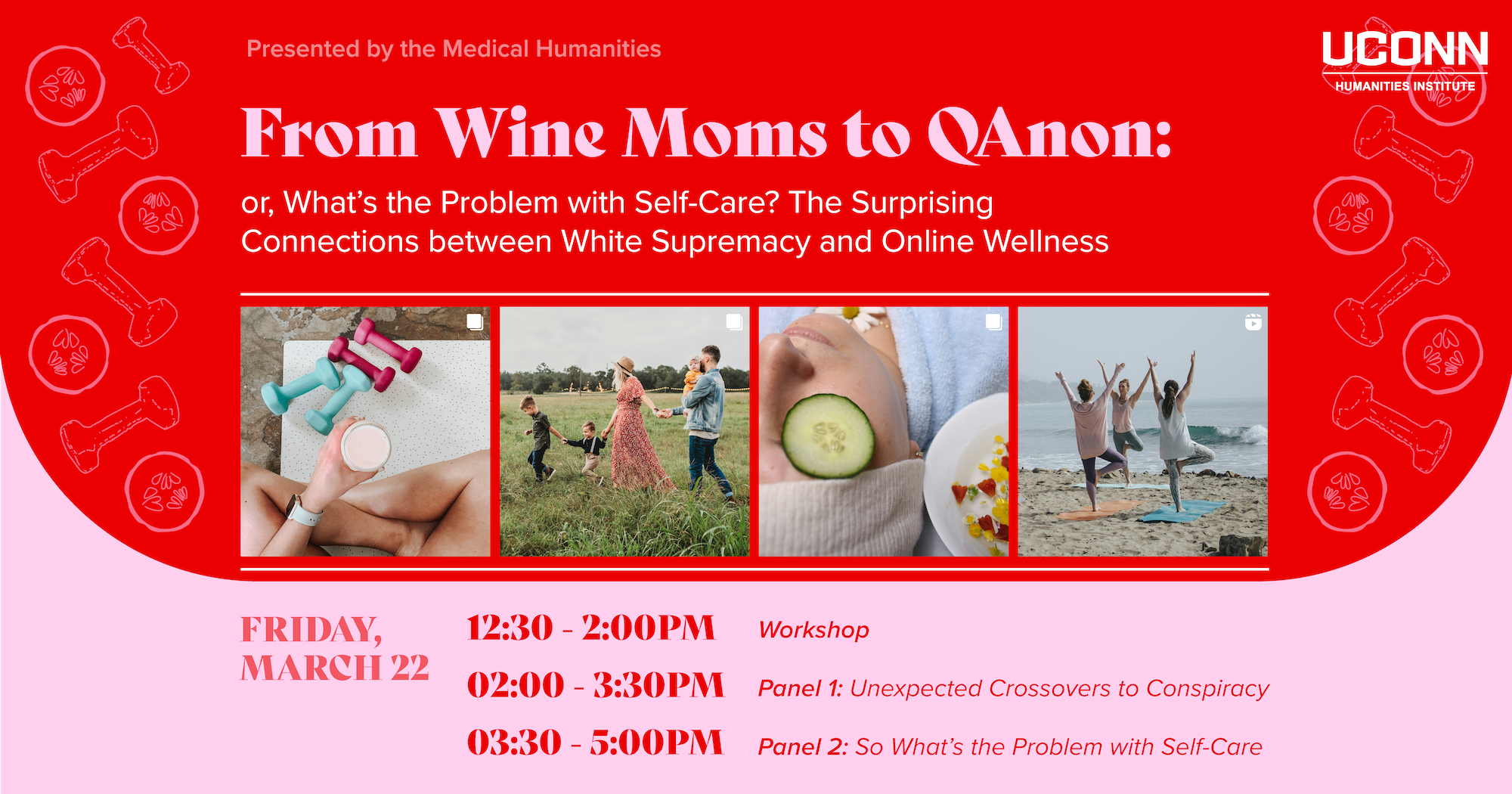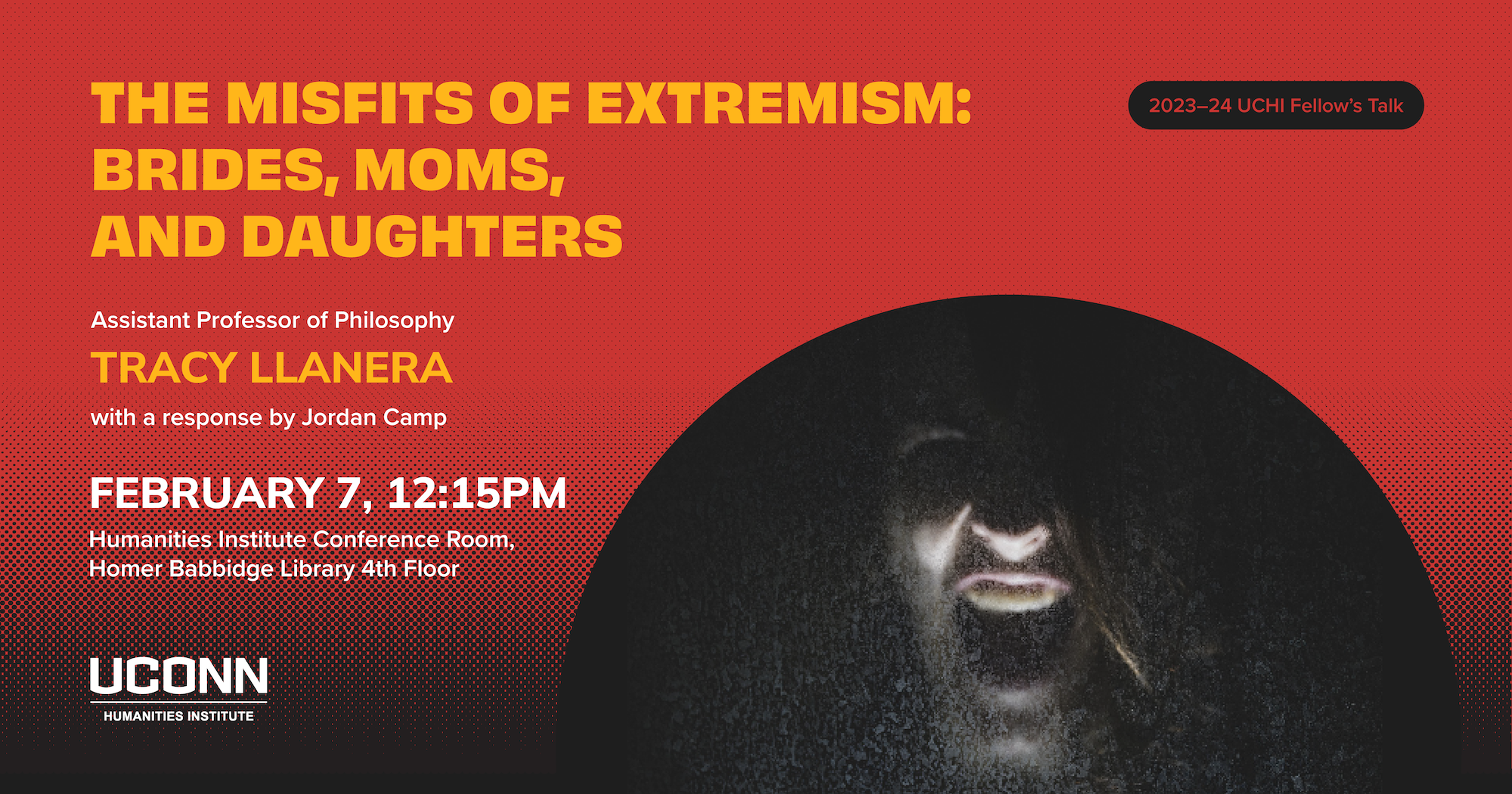
If you require accommodation to attend this event, please contact us at uchi@uconn.edu or by phone (860) 486-9057. We can request ASL interpreting, computer-assisted real time transcription, and other accommodations offered by the Center for Students with Disabilities. The panel discussion will be livestreamed with automated captioning.
The Medical Humanities & Arts Initiative presents:
From Wine Moms to QAnon: or, What’s the Problem with Self-Care? The Surprising Connections between White Supremacy and Online Wellness
March 20, 2020
Writing Workshop: 12:30–2:00. Register to attend workshop.
Panels: 2:00–5:00pm. Register to attend panels virtually
Homer Babbidge Library, UCHI Conference Room
The spread of online racism, homophobia, and misogyny continues to wreak havoc in our homes, our schools, and our streets. Media coverage has illuminated how the toxic masculinity of the Proud Boys and other hate groups function in these spaces. Most of us—students and faculty alike—know to avoid these openly hateful spaces, and often take refuge in seemingly frivolous posts about wellness, beauty and self-care. Yet the spread of white nationalism continues unabated, often with “recruits” emerging in surprising places.
Join us for an interdisciplinary workshop and panel discussion that explores how mommy blogs and beauty influencer posts offer “innocent” vehicles for white supremacist tenets of purity, and rigid bodily surveillance.
The day will begin with a writing workshop (12:30-2:00 pm) in which all researchers working on adjacent topics will be invited to join us in group writing and discussion in response to a pre-circulated article. Join us for lunch and the opportunity to think and write with other scholars thinking through these thorny issues. This workshop is open to faculty and graduate students. Registration is required.
The workshop is followed by two panel discussions, open to all. Please consider inviting your undergraduate students; we are eager to learn from their perspectives on contemporary online culture.
Schedule:
12:30-2:00 Writing Workshop with Lunch Register for the workshop
2:00-3:30 Panel 1: Unexpected Crossovers to Conspiracy
“Conspiracism” Eric Berg, Philosophy, UConn
“Romance” Alexis Boylan, Art History, Africana Institute, UConn
“Wine Mom” Beth Marshall, Faculty of Education, Simon Fraser University, Vancouver, CA
3:30-3:45 Coffee Break
3:45-5:00: Panel 2: So What’s the Problem with Self-Care?
“Retreat” Leigh Gilmore, English, The Ohio State University
“It Girls” Tracy Llanera, Philosophy, UConn
“Microbiome” Rebekah Sheldon, English, University of Indiana



